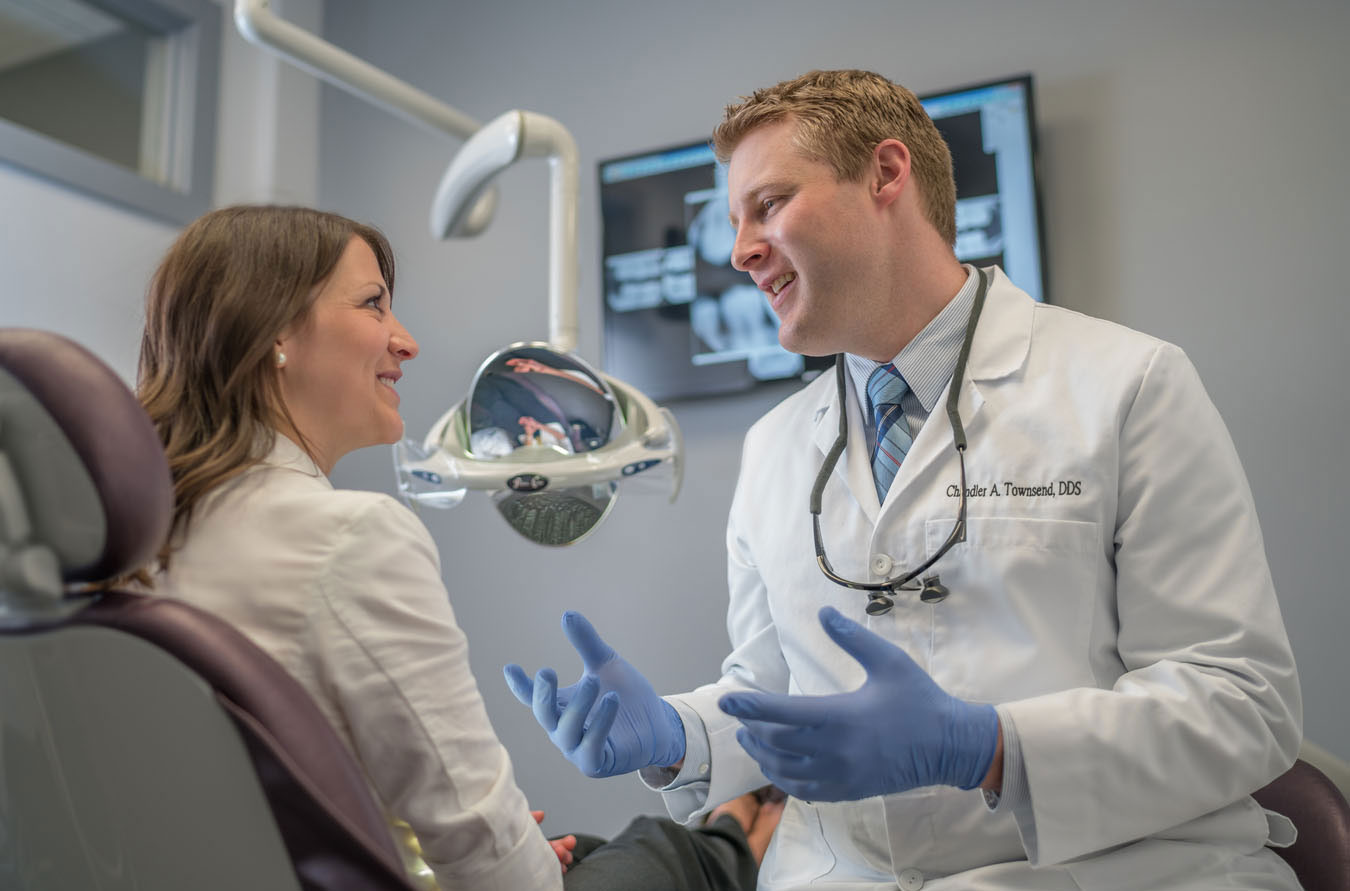
Professional teeth whitening is a popular process among many. It provides clients with brighter, whiter smiles. But getting your teeth professionally whitened comes with some considerations. The bleaching agents used during the whitening process are very strong and can take a toll on the teeth. One of the most common byproducts of this process is the teeth becoming dehydrated.
What Does It Mean If Your Teeth Are Dehydrated?
The tooth is made up of several protective layers. Each of these is designed to protect the fragile, internal nerve center of the tooth. Once under the first protective layer, the pores of the tooth are exposed. These pores are the reason why stains can settle so deep into the tooth, and also why tooth whitening is even possible. But these open pores allow for moisture to leave the tooth, thus resulting in what is known as “dehydrated teeth”.
The Whitening Process & Why It Dehydrates Teeth
During the whitening process, your dentist will use a teeth whitening gel. Often in in-office teeth whitening, this product is made from carbamide peroxide, which is a strong bleaching agent. This gel penetrates the tooth and removes surface stains from the top and right under the surface of the protective layer that covers the tooth. The tooth’s pores are now open and exposed to the outside environment. This raises the internal temperature of the teeth, resulting in a loss of moisture and making them prone to dehydration and other vulnerabilities, including tooth pain and sensitivity.

Dehydration vs. Decalcification
As previously mentioned, tooth dehydration refers to the lack of moisture that may occur when the tooth’s internal temperature increases and the amount of moisture in the mouth decreases. This generally occurs after a process like teeth whitening, where a penetrative agent opens up the pores in the teeth. Often tooth dehydration is a relatively easy fix and can be prevented.
Tooth decalcification, on the other hand, refers to a lack of essential minerals in the mouth and its effect on the health of the tooth. Tooth decalcification can happen when these necessary minerals that keep the teeth healthy and strong are stripped away. Tooth decalcification can arise from an excess amount of plaque, braces, poor diet, poor dental hygiene, and lack of dental visits or dental interventions.
Symptoms of Dehydrated Teeth
Dehydrated teeth can arise due to a variety of reasons aside from a reaction to teeth whitening products. Simply sleeping with your mouth open overnight can result in dehydrated teeth. Common symptoms of dehydrated teeth include:
- Hard Enamel. One of the differences between tooth dehydration and tooth decalcification is the hardness of the enamel. During teeth dehydration, the enamel remains rigid. However, during tooth decalcification, the enamel is kind of soft and chalky.
- Dry Mouth. Because tooth dehydration comes from a lack of moisture, it often comes accompanied by a dry mouth. While a dry mouth does not imply that the teeth are dehydrated, it is a helpful marker. Generally, dry mouths can be supplemented by increasing your overall hydration.
- White Spots. White spots are a telltale sign that the teeth are dehydrated. These white spots will appear on the teeth, generally overnight. Often these blemishes will go away after some brushing. But, if they don’t disappear after brushing your teeth, it may be an indication of a bigger problem.
How To Rehydrated Teeth After Whitening
There are several ways to rehydrate the teeth after the tooth whitening process. If your teeth continue to suffer from dehydration after a week from your treatment, consult your dentist or dental clinic for more information.
- Clear-diet. A clear diet is an important step to take after a teeth whitening treatment. Not only does it help with rehydrating your teeth, but it ensures that they remain stain-free until the pores close. The clear-diet recommends avoiding smoking, coffee, red wine, and other dark-colored foods that are liquids and focusing on foods that are light shades of white and beige.
- Fluoride treatments. Your dentist may recommend a post-whitening fluoride treatment, especially if you have sensitive teeth. Fluoride works to restore minerals onto the tooth’s surfaces after dental procedures like tooth whitening. This treatment helps with preventing future re-staining and long-term tooth sensitivity.
- Stay hydrated. Because your teeth are a part of your body, they benefit from your overall hydration. A primary way to ensure that your teeth remain hydrated is to drink enough water throughout the day. Most health professionals recommend around 8 to 9 glasses of water a day.

Call Abundant Dental
Abundant Dental is one of the leading providers of cosmetic teeth whitening. Our talented team of experienced dental professionals is trained in proper whitening procedures and after-care. We offer an in-office teeth whitening experience that is easy, convenient, and comfortable. Additionally, we provide other cosmetic dental services including veneers and crowns. Our dentists continue to study their craft as they work to provide the most up-to-date and skilled procedures and treatments. To schedule an appointment or speak with one of our team members, call us today!
